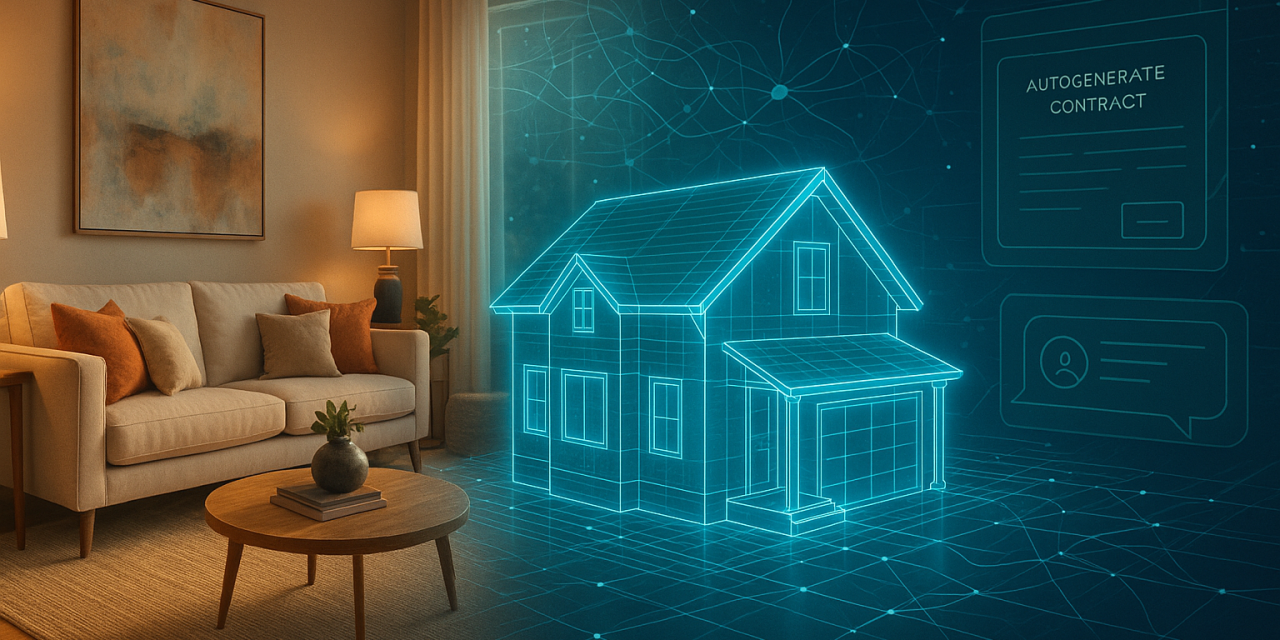The real estate industry is undergoing a profound transformation, driven by the rapid advancements in generative artificial intelligence. This cutting-edge technology is not only revolutionizing how properties are visualized and marketed but also streamlining complex transaction processes, creating a more efficient and engaging experience for buyers, sellers, and agents alike.
Immersive Visuals: Beyond Traditional Listings
Generative AI tools are redefining property visualization. Gone are the days of static, uninspiring photos. Now, AI-powered platforms offer:
- Advanced Virtual Staging: AI can instantly furnish and decorate empty rooms with realistic furniture and decor, allowing potential buyers to envision a property’s full potential without the need for expensive physical staging.
- Dynamic 3D Tours: Generative AI is enhancing virtual tour platforms, creating immersive and interactive 3D models of properties that buyers can explore from anywhere, at any time. This provides an unparalleled sense of space and layout.
- Personalized Design Concepts: AI can even generate personalized interior design ideas based on a buyer’s preferences, helping them to truly connect with a property before they even step inside.
These visual innovations are making property listings more appealing and informative, significantly increasing buyer engagement and accelerating the sales cycle.
Streamlining Transactions: AI-Powered Efficiency
Beyond visualization, generative AI is also tackling the traditionally cumbersome aspects of real estate transactions:
- Automated Contract Creation: AI-powered systems like Nekst and Glide are automating the generation of contracts, disclosures, and other essential paperwork. With chat-like interfaces, agents can simply describe their needs, and the AI drafts the necessary documents, ensuring compliance and reducing errors.
- Paperwork Processing: AI can rapidly process and analyze vast amounts of textual data from sales contracts, loan agreements, and other documents, extracting key information and flagging discrepancies.
- Predictive Analytics: AI algorithms are being used for more accurate property valuations and market forecasting, providing agents and investors with deeper insights to make informed decisions.
This automation frees up real estate professionals from tedious administrative tasks, allowing them to focus on client relationships and strategic decision-making.
The Future is Intelligent and Seamless
The explosive growth of the AI real estate market, projected to reach over $300 billion by 2025, underscores the industry’s embrace of these transformative technologies. Generative AI is not just a tool; it’s a catalyst for a new era of efficiency, personalization, and innovation in real estate. As AI continues to evolve, we can expect even more sophisticated applications that will further enhance every stage of the property lifecycle, making the process of buying, selling, and managing real estate more intelligent and seamless than ever before.





